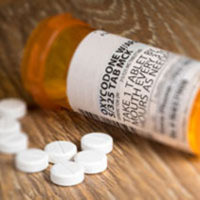“Failure to Warn” Drug Claims
April 18, 2019 It is not out of the ordinary: someone gets sick and makes an appointment with his or her doctor. The doctor diagnoses them and prescribes a medication that is supposed to help them get better. It should end there, but far too often manufacturers fail to warn consumers about the possible drug interactions and risks that accompany a medication and someone gets sick – or dies – because of it.
It is not out of the ordinary: someone gets sick and makes an appointment with his or her doctor. The doctor diagnoses them and prescribes a medication that is supposed to help them get better. It should end there, but far too often manufacturers fail to warn consumers about the possible drug interactions and risks that accompany a medication and someone gets sick – or dies – because of it.
Medication Errors in the United States: Quick Facts
According to a Johns Hopkins study, medical errors are the third-leading cause of death in the U.S. and approximately 250,000 people die from them every year. The Food and Drug Administration (FDA) notes that many different types of medication errors can lead to dangerous and deadly consequences, such as:
- Dispensing,
- Monitoring,
- Repackaging/packaging, and:
- Prescribing
What Does “Failure to Warn” Mean?
“Failure to warn” refers to a legal situation where a retailer, distributor, or manufacturer fails to provide adequate product warning labels or instructions, and the consumer experiences injury, illness, or death as a result. Medical errors cause hundreds of thousands of injuries and fatalities every year – and this includes medication mistakes. According to the National Center for Biotechnology Information (NCBI), poor labeling is one of the main causes behind the largest percentage of medication errors that occur.
Sometimes labels have the wrong information – or simply not enough of it – listed. At other times they are difficult for patients (or the pharmacists who fill them) to interpret. Here are some examples of different failure to warn scenarios where the injured party could file a legal claim against a responsible party:
- When a medication warning label fails to indicate possible interactions between drugs and someone has an adverse medical reaction because of it;
- When a label does not fully list possible complications and a high-risk patient experiences illness or injury as a result;
- When a doctor fails to tell a patient about the dangers that accompany the medicine he or she is prescribing, and consequently the patient experiences a serious medical event
In a failure to warn lawsuit, the injured party must prove that his or her injuries resulted from a breach of the accepted standard of care and that the manufacturer, retailer, or distributor knew – or should have known – about the dangers that they failed to disclose.
Why It Is Important To Talk To A Lawyer
Filing a lawsuit for injuries sustained after taking a medication against the manufacturer, retailer, or distributor for the failure to warn – or against a healthcare professional who deviated from the accepted standard of care – is often a complicated and confusing process. An attorney can not only help answer your questions and offer guidance, but can also represent and fight for your best legal interests. If you would like to learn more about filing a failure to warn claim, please contact a representative at our firm directly who can help.
Philadelphia Product Liability Lawyers at Galfand Berger, LLP Representing Injured Individuals Since 1947
If you became ill or were injured as a result of an insufficient or incorrect medication-warning label, please contact our Philadelphia product liability attorneys at Galfand Berger. With offices located in Philadelphia, Bethlehem, Reading, and Lancaster, we serve clients throughout Pennsylvania and New Jersey. To schedule a consultation, call us at 800-222-8792 or complete our online contact form.
 Google Screened
Google Screened
